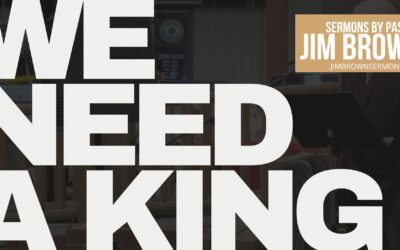JANUARY 23, 2025
EP 10: The True Meaning of DEATH | Unlocking God’s Grace and Mercy
Genesis 3-11
What if death isn’t the end, but a separation that changes everything? Dive into the powerful truth of God’s grace and mercy—a story of hope, redemption, and restoration that reveals how His love draws us back to Him.
Sermon Study Resources
Sermon Notes
Your Subtitle Goes Here
Sermon Notes: The True Meaning of Death | Unlocking God’s Grace and Mercy
Introduction: Trusting God in Every Season
-
Key Scripture: Genesis 1:1 (NLT): “In the beginning, God created the heavens and the earth.”
-
Reflect on the sovereignty of God as Creator.
-
Our understanding of life and death must start with God’s perspective.
Part 1: Understanding the True Meaning of Death
-
Key Message: Death is not just physical; it is spiritual separation from God.
-
Genesis 3 introduces broken fellowship with God as the essence of spiritual death.
-
Genesis 4:3-5 (NLT): Cain and Abel’s story reveals the consequences of separation and rebellion.
-
-
Focus Keyword: God’s Grace and Mercy
-
Despite Cain’s sin, God offers him a second chance: Genesis 4:7 (NLT): “You will be accepted if you do what is right.”
-
Part 2: Four Foundational Truths in Genesis 1-11
-
God’s Sovereignty
-
Genesis 1-2 emphasizes God’s ultimate authority and creative power.
-
Genesis 2:7 (NLT): God breathes life into humanity, showing His intimate involvement.
-
-
God’s Relationship with Mankind
-
Humans are made in God’s image: Genesis 5:1 (NLT): “When God created people, he made them to be like himself.”
-
-
The Battle for the Mind
-
Sin begins with thoughts that defy God’s will.
-
Romans 12:2 (paraphrased): Renewing the mind is key to spiritual transformation.
-
-
God’s Grace and Justice
-
God balances judgment with mercy. Example: the flood (Genesis 6-9).
-
Part 3: Cain and Abel—A Lesson on Devotion and Defiance
-
Genesis 4:3-5 (NLT): Cain’s offering was unacceptable because it lacked true devotion.
-
Key Insight: God does not desire empty religious actions but heartfelt worship (Galatians 3:3).
-
God’s warning to Cain: Genesis 4:7 (NLT): “Sin is crouching at the door, eager to control you.”
Part 4: The Great Commandment and Loving God
-
Key Scripture: Matthew 22:37-39 (referenced in connection to Genesis themes)
-
Loving God with all your heart and loving others reflects the purpose of life.
-
-
Application: Glorify God by representing His image in how you live and interact with others.
Part 5: Lessons from the Tower of Babel
-
Genesis 11:6 (NLT): The people’s defiance led to judgment, but God’s grace prevailed.
-
Takeaway: Unity must be centered on God’s will, not human ambition.
Part 6: Renewing the Mind and Trusting God
-
Transformation starts with addressing defiance in our hearts.
-
1 Corinthians 10:13 (NLT): “When you are tempted, he will show you a way out.”
-
Hebrews 10:22-23 (NLT): Encourages believers to draw near to God with sincere hearts.
Key Takeaways: Applying God’s Word
-
Glorify God
-
Reflect His image in your daily life.
-
-
Renew the Mind
-
Align your thoughts with God’s truth.
-
-
Trust God’s Grace and Mercy
-
Recognize His kindness leads to repentance.
-
Reflection and Call to Action
-
Are you living to glorify God or pursuing your own way?
-
James 4:16 (NLT): Warns against boasting in our plans without seeking God.
-
Let us be a unified body that demonstrates God’s love to the world: John 13:35 (NLT): “Your love for one another will prove to the world that you are my disciples.”
Final Prayer
-
Pray for renewed minds, humble hearts, and lives fully devoted to God.
-
Commit to living in alignment with His will, trusting His grace and sovereignty.
Bible Verses
Your Subtitle Goes Here
Bible Verses
Genesis 1:1 (NLT)
“In the beginning, God created the heavens and the earth.”
Genesis 2:7 (NLT)
“Then the Lord God formed the man from the dust of the ground. He breathed the breath of life into the man’s nostrils, and the man became a living person.”
Genesis 4:3–5 (NLT)
“At harvest time Cain brought to the Lord a gift of his farm produce, while Abel brought several choice lambs from the best of his flock. The Lord accepted Abel and his gift, but he did not accept Cain and his gift. This made Cain very angry and dejected.”
Genesis 4:7 (NLT)
“You will be accepted if you do what is right. But if you refuse to do what is right, then watch out! Sin is crouching at the door, eager to control you. But you must subdue it and be its master.”
Genesis 5:1 (NLT)
“This is the written account of the descendants of Adam. When God created human beings, he made them to be like himself.”
Genesis 6:5 (NLT)
“The Lord observed the extent of human wickedness on the earth, and he saw that everything they thought or imagined was consistently and totally evil.”
Genesis 9:1 (NLT)
“Then God blessed Noah and his sons and told them, ‘Be fruitful and multiply. Fill the earth.'”
Genesis 11:6 (NLT)
“Look!” he said. “The people are united, and they all speak the same language. After this, nothing they set out to do will be impossible for them!”
Galatians 3:3 (NLT)
“How foolish can you be? After starting your new lives in the Spirit, why are you now trying to become perfect by your own human effort?”
Hebrews 10:22–23 (NLT)
“Let us go right into the presence of God with sincere hearts fully trusting him. For our guilty consciences have been sprinkled with Christ’s blood to make us clean, and our bodies have been washed with pure water. Let us hold tightly without wavering to the hope we affirm, for God can be trusted to keep his promise.”
James 4:16 (NLT)
“Otherwise you are boasting about your own plans, and all such boasting is evil.”
1 Corinthians 10:13 (NLT)
“The temptations in your life are no different from what others experience. And God is faithful. He will not allow the temptation to be more than you can stand. When you are tempted, he will show you a way out so that you can endure.”
John 13:35 (NLT)
“Your love for one another will prove to the world that you are my disciples.”
Sermon Slides
Your Subtitle Goes Here




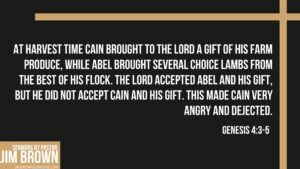

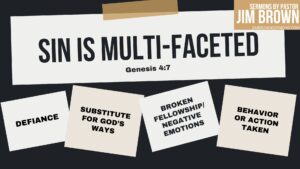


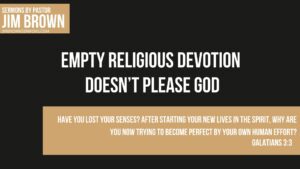


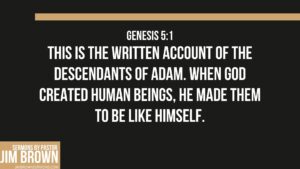
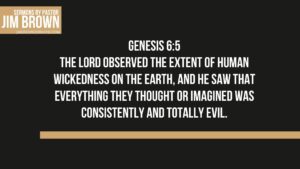
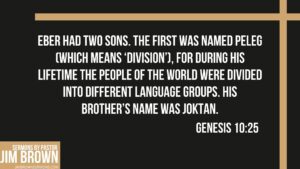



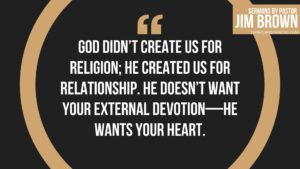



Related Song List
Your Subtitle Goes Here
Recommended Resources
Your Subtitle Goes Here
Books:
- God Never Gives Up on You: What Jacob’s Story Teaches Us About Grace, Mercy, and God’s Relentless Love by Max Lucado
- This book explores the life of Jacob, illustrating how God’s grace and mercy are unwavering, even when we falter.
- The Grace of God by Andy Stanley
- Stanley offers a transformative perspective on God’s grace, emphasizing its unmerited nature and profound impact on our lives.
- The Ragamuffin Gospel by Brennan Manning
- Manning delves into the concept of grace, arguing that it is a gift freely given by God, not something to be earned.
Articles and Blog Posts:
- The Christian Understanding of Death and Dying According to Scripture
- This article provides a biblical perspective on death, emphasizing it as a transition to eternal life through Christ. Logos Bible Study Platform
- The Biblical View of Death
- An exploration of how death is perceived in the Bible, highlighting the hope and assurance it offers to believers. Christian Courier
- Understanding Death: A Biblical Perspective of Hope
- This piece discusses the nature and meaning of death from a biblical standpoint, offering comfort and understanding. Answered Faith
Videos:
- What Does Death Mean To A Christian?
- This video delves into the Christian perspective on death, discussing it as a transition rather than an end. Christianeducatorsacademy.com
- Death Is Not the End
- A video that explores the concept of death in Christianity, emphasizing the promise of eternal life. Christianity.com
Sermon Transcript
Your Subtitle Goes Here
Transcript: The True Meaning of Death |
Raelynn and I have had opportunities over the last 10 years to go to different churches. You don’t always know what their needs are, but as you just trust God to lead. During the time we went to one service where right off the bat the pastor said, I’ve never done this before, but I feel the need to have an altar call before the service even starts. And we say, okay, during the music, he kind of did an altar call and people just came pouring forward and it was about a three hour service. And I came with something completely different planned, but God is good. And I looked at my message and said, Lord, this just doesn’t fit. Where does it fit in? And so I just opened my, it was one of those, you open your Bible and it opened to one Corinthians and I had a whole bunch of coloring there, just all these notes. I just started to go through my notes and then it just led right into the message that I had already prepared and God was gracious, but it’s in our weakness that he’s made strong. So we’ll pray that you’ll be real weak.
Yes. Speaking of weaknesses, there’s a lot of things we don’t know about life, right? I mean that’s one of our major weaknesses is there’s a lot we don’t know. And I brought this candle in and I was asked this morning, are we going to have incense and meditation or what here? But no, we’re going to ponder. It’s a candle. What can we learn about this candle? What do you know about it? Made of wax. It’s made of wax. It’s green, it it’s burning. How long has it been burning? When was it lit? How tall did it start out? Do you think? It’s kind of tapered. See that? So maybe the tapers just follow up and it started a long time ago and it’s tapered down. Or maybe it just started right here and then it’s kind of beat up. Maybe he bought it used, maybe he bought it used could have. Maybe it’s been lit several times, not just once and been burning.
How can you determine, I mean maybe we could put it on a scale and watch it get lighter and lighter and determine how fast it’s burning down by its weight and then maybe determine how old it is by how fast it’s losing weight, considering it hasn’t blown out into meantime for a couple of years. What would it take to understand the history of this candle? Can it be determined in a science class? Is history and science related? What would give you more indication of how long that candle has been burning by knowing it’s past? I’ve had that candle since it’s brand new. So where would you go if you wanted information on that candle? You can go to a science lab and try to figure some things out, but it’s just going to leave you guessing. But if you go to the person who’s had that candle and go all the way back to the maker, know the whole history of it, you learn a lot more. So properly defined science is the study of God’s world as he made it. It’s a study, that’s all it is. It’s like biology is the study of, and theology is a study of God and all these ologies are studies of, and we can make a ology here and have a study of, but all we could tell you about is what’s happening with it now based on its present state of what we understand.
So really we want to look at it more historically and that’s what’s important. Moses faced a similar situation. The people knew what life they had had for over 400 years. The people of Israel had lived in captivity in Egypt and Moses led them out. They had been exposed to a lot of weird concepts of God and he needed to help them understand who they were, where they’ve come from and who God is. And he needed to do it in a way that was more historically oriented, not scientifically oriented. He didn’t start a science class. He instead started to teach God’s word from a historical viewpoint, and that’s what we’re doing here. And they needed to understand who their God is. And there are four spiritual truths that are really established in Genesis one through 11. And a lot of people like to slice and dice the Bible up and there’s different ways of doing it.
And one way to do it is to look at it in periods of time and events. If you look at Genesis one through 11, that was basically from Adam to Abraham, okay? It goes right on through Noah and then ends before Abraham begins and conservatively speaking, they look at that as a 2000 to 2,500 year period from Adam to Abraham, and that’s Genesis one through 11, and then from Abraham to Jesus is another 2000 years of Old Testament history and the modern Jewish nation. And then from Jesus to today is what? Another 2000 years. I’m just rounding some numbers off here. But basically, so we’re looking at 6,000, 6,500 year history there starting in Genesis. But Genesis one through 11 really lays some foundational issues down. The first one is who God is, that he is sovereign, he’s the creator that there’s one God. This was important for the people of Israel to understand because they came from a culture that talked about many gods and those gods were not a loving God, they were not a creator God and they really did not have man’s best interest in mind.
So there was the second one is that God’s relationship to mankind was important to get established because the other gods looked at mankind as a nuisance, more or less. But our creator, God says that we are in his image and his likeness. Also, there was the introduction of the spiritual battle for the mind in Genesis one through 11, and that the battle’s not out there, but there’s things going on in our mind that turn us away from God. It’s a matter of our own thinking and the introduction of Satan’s thoughts into our minds. And then the fourth thing is the balance of God’s grace, justice, and that man has a responsibility that God is very involved in the process with grace, but also with justice. And that man has a responsibility in that process. So Genesis one through 11 gives us the foundation for understanding the whole rest of scripture and understanding all of human life for that matter.
We understand that the universe functions according to certain laws. We know that scientifically and we can see that and we know how those laws got established. But then it also establishes that humans operate by spiritual laws also and that is following God and what he says in terms of how we should live. So if we compromise physical laws such as the law of gravity, you compromise that law and you’ll pay the penalty, right? Well, if you compromise spiritual laws such as pursue God in a relationship with him, you will suffer the penalty. So Moses had his hands full at this point. He’s looking at the way the people behave. They were into idolatry. They were having disputes. Moses was playing a judge trying to keep them civilized or civil, and it seemed like a losing battle. He was overwhelmed with the needs of the people.
So here’s poor Moses saying, what am I going to do? These people are driving me nuts. Look at their behavior. He wanted their behavior to change, but Moses knew that something else had to change first what their thinking, the way they thought about God and themselves. So I’m sure as he did that, all of a sudden a came to mind and he said, this is it. This is how we’re going to do it. Well, he thought what they believe about God, I’ve got to get that established in Genesis one. They’ve got to know who this God is in orders to start behaving properly. Then they’ve got to understand who they are and why they’re here, their purpose. So there you have it, the foundation for all of mankind laid out in Genesis one through 11, and primarily through Genesis one through three. So in other words, Moses understood that if what you believe isn’t true about God and who you are and your purpose, then how you behave won’t be right.
So he began working on that foundation in order for them to start behaving the way God would want them to. So he got busy with teaching. They were indoctrinated into a very corrupt culture. The renewing of their minds is where he needed to start. He began with Genesis one in the beginning, God, remember that it’s a singular God with a plural aspect to the name. So in Paul Creel man’s Hawaiian bible that he read from the other night, it may say something like this that he’s the boss, he made it all. Everything that you see is because of him. You got to be tight with the boss. That’s Genesis one, one. You got to be tight with the boss. Got to be close. Genesis two, Moses goes on to say, remember what I said about day six? That’s what Genesis two is all about. Day six in creation, God takes a special interest in mankind breathing life into him, which made Adam both physically alive and spiritually alive.
So day six was broken down into the creation of all these other beings, but then specifically one portion of it was covered in chapter two. That’s where we find meaning and purpose in life, understanding who God is, who we are, how he’s created us, and why he’s got us here. Now, there were no chapter divisions in Genesis originally or in any of the Bible. That’s all put in by man, but it helps us get a handle on it. So Moses is teaching. Just imagine this. Moses is teaching. He’s laying the foundation. Genesis one, Genesis two. Then he is just moving right on teaching Genesis three, which is the true meaning of death. He talked about the true meaning of life, and we covered that last week. Now he’s looking at what’s the real meaning of death and what it means to die. And it’s broken fellowship with God and with one another.
That’s what happened when sin entered the human race, but it also showed that God is still in control even though man is out of control or man tries to take control, that God is still in control. So in other words, Adam and Eve didn’t stay tight with the boss and things fell apart on him. They were removed from the garden. They faced a worldwide curse and now God’s work of redemption begins after Genesis three. Now the plot thickens or sickens as it may be, as Moses is teaching the people of Israel. So we’re picking up there, Genesis four, one through 25 is the story of Cain and Abel. You might remember that the effect of sin was seen very, very early in the human race as our experience as Kain murdered Abel. I’m going to read from Genesis four, three through five. At harvest time, Kain brought to the Lord a gift from his farm produce while Abel brought several choice lambs from the best of his flock.
The Lord accepted Abel and his offering, but he did not accept Cain and his offering. This made Cain very angry and dejected. So why wasn’t Cain’s sacrifice acceptable to God? Tex doesn’t say there’s some people who believe because there was no blood involved and that he needed to have a blood sacrifice. Others say that the wording of the original language wouldn’t quite be the same for a blood sacrifice and that it’s what’s being introduced here is the distinction between just outward religion or some sort of external trying to pacify God and true devotion to God. And I agree with that a little more. I think that’s pretty obvious. Anyway, Abel came with the right motivation, the best of his flock while Kane came rather grudgingly, the text says that Abel brought the firstborn the best while Kane’s offering is just merely described as from the ground.
So whatever the cause is, Kane’s offering is unacceptable. We know that. So whoever you assume is being unreasonable at this point is very important of your concept of God. Whose side are you starting to lean towards already? Are you starting to say, well, Kane didn’t know or this or that, or are you standing firm on God’s word and saying, I believe God is true and Kane knew what to do? You see already in our mind we have a tendency to sometimes say, what about the underdog? And we start to drift. And in Cain’s case, his emotions are a dead giveaway. Remember in chapter three, Adam defied God’s word and without realizing that his emotions took over, he felt shame and fear. First two emotions that are mentioned in the Bible. And then he tried to put God off at a distance by hiding, and then he went on to blame somebody else while Cain’s emotions also reveal something has gone on.
Something deeper says, but he did not accept Cain in his offerings and this made Cain very angry and some versions say he was angry and downcast or depressed. And so here we have anger and depression being introduced into the human emotions through what? Resistance to God’s ways. In Genesis four, seven, it goes on to say, if you do well, will not your countenance be lifted up? And if you do not do well, sin is crouching at the door and its desire is for you, but you must master it so you can go on to see that Cain’s actually given another chance, isn’t he? Do you ever look at that as grace and mercy and especially the people of Israel at that time, they knew that if God was not pleased with you, you were in big trouble. So people of Israel are already starting to see that this God that Moses is talking about is a God of grace and mercy, one of second chances, and he’s giving Cain a second chance, a chance to do what is right.
So to do well, to do what is right. We’re going to look at it as a multifaceted thing that sin is multifaceted, that it’s not just that he did wrong by giving the wrong sacrifice, offering the wrong thing, but no, there’s more to it than that. The first one is part of sin is defiance. There’s an element of defiance that’s got to go along with sin. And I give an example of that is Rahab. She had lied and I don’t believe that there was an issue of defiance there. As much as there was ignorance, God did not hold her accountable or judge her for that lie. In fact, it says that she was blessed. So there wasn’t that element of defiance. There was probably more of a matter of ignorance, but there was defiance with Cain and there was a substitute for doing things God’s way.
He did something, it seemed right, it seemed okay, it was good enough, but it wasn’t God’s way. It’s the way he determined it should be. And then within the effects of sin and what goes on there, this multifaceted thing is that there’s broken fellowship primarily with God, and then it also is broken fellowship with other people. When sins involved, we have a tendency to put up walls and barriers maybe to keep from being found out and negative emotions come as a part of it also, and we try to manage those emotions. Then when we live in a culture today that tries to manage negative emotions and then finally behavior and action is taken and we continue to act and live a lifestyle separate from God. So looking at this, again, just keeping this in mind, God is not saying that we need to change our behavior necessarily. When he says to Cain, if you do well, won’t your countenance change? He’s not saying start here, do this. Right? No, God’s addressing another issue.
Deal with the attitude. Get the right attitude. Trust him. Trust God, deal with the defiance. Get that under control. Understand that you cannot defy God and get away with it. That’s all there is to it. Go back to Genesis one, one in the beginning, God, he’s it. You can’t defy him and get away with it. And when you deal with that and you don’t substitute your ways for his ways, the fellowships restored, you can be walking in the light with God and other people. Your emotions respond and your behaviors change and you do what is right. So when God called cain to do what is right, it included the whole ball of wax up there. It wasn’t just the behavior, but he needed to change from within. If trust and humility aren’t at the core of your actions, then sin is at the door. Trust and humility have got to be at the core of your actions or sins going to be crouching at the door.
Remember, Adam and Eve’s sin began with relying on their own limited understanding, which caused them to believe that God just wasn’t playing fair. Well, Cain fails to respond to God humbly like he should, and his feelings take over and what happens? He murders his brother, God’s authority’s not threatened by this. He’s not up there flopping around in heaven saying, oh no, what am I going to do? The first murder just took place. No, the sovereign God is still in control and he dulls out a punishment and listen to this punishment, really it’s full of grace and mercy.
This is Cain’s response in Genesis four 14, you have banished me from my land and from your presence, you have made me a wandering fugitive. Could have been an eye for an eye, but he didn’t do that. But the true meaning of death has carried on through this process. What is it? The meaning of death. Separation. Separation. Exactly. What did he say? You have banished me from your presence. He experienced death right there. The true meaning of death was separation from God as God had banished him from his presence. So what we see here is the division of the Godly and the ungodly beginning. This is the beginning of a separation of ways those who seek after God and those who don’t. So I can imagine now Moses, he’s teaching his people, he’s gotten them to this point, Cain and Abel, he pauses, he says, what can we learn from Adam and Eve? What can we learn from Cain and Abel?
I thought of three things. God is full of grace and mercy, but he will not compromise. God is full of grace and mercy, but he won’t compromise. In James four 16 it says, otherwise you’ll be boasting about your own plans and all such boasting is evil. See, God warns of the consequences of defiance that they’re there. There is judgment. That judgment has got to take place for sin, for willful disobedience. Another thing that could be learned is that empty religious devotion doesn’t please God. He wants our whole heart, our whole soul. He wants us into him with everything. In Galatians three, three it says, have you lost your senses after starting your Christian lives in the spirit, why are you now trying to become perfect by your own human effort? It’s not a matter of human effort. We don’t come to God in our efforts, but in our weaknesses, another thing that we can learn is that there’s a bent towards defiance that’s in our lives, but we can have control over it because he said to Cain, take control.
Don’t take control of the emotions. Don’t take control of the behavior. Take control of the defiance. We have control over that and if we don’t humble ourselves, it leads to depravity and death. That’s what he’s saying. New Testament picks right up on this. Did you ever think about this? When Paul called and said, bring me my scriptures, what was he calling for Old Testament? He didn’t have the New Testament, so he was teaching the people from this. So when he gets to one Corinthians 10 13, he’s saying, remember that temptations come to everybody’s life. Everybody’s going to have ’em. And yours is no different than the ones that other people experience, but God is faithful. God’s the faithful one. He’ll keep temptation from being so strong that you can’t handle it. He’ll show you the way out so that you don’t give into it. Or does he show you the way out?
It’s on the end of defiance. Deal with the defiance and you’ll find the way out of temptation. But as long as you remain defiant, you’ll struggle with God in your relationship with him. So now we’re moving from the first family. Okay, what’s the score? People worry about how their kids turn out and kind of take it personally. Well, look at God’s first. Kids don’t feel so bad if your kids don’t turn out the way you had hoped. It’s not up to you Do your best, right? Grace, mercy and judgment follows all the way through. In Genesis five, what happens is we just zoom ahead a whole bunch of years in Genesis five, it takes us quickly from the days of Adam and Eve to the days of Noah, it traces Israel’s roots back to the beginning. It shows all the generations of people and who they were and what they were.
That was again, a mind shift for the people of Israel because they didn’t realize they all had the same origin because it was up to the gods who was going to create who and who was going to destroy who. And different gods create different things. And so therefore, they didn’t understand this concept that all people are related in Adam and that he’s the original father of mankind. So they’re doing some real gear turning here as Moses is teaching. So he brings this genealogy in to show them who their ancestors are corporately they have the same origins.
And in Genesis five one it says, this is the history of the descendants of Adam. When God created people, he made them what in the likeness of God. He’s reminding them despite the fall, despite what took place in Genesis three and Genesis four, you’re still made in my image that hasn’t changed. There’s some other changes that have taken place, but don’t forget who you are and why you’re here. And then in six one through eight it kind of wraps up those genealogies. It takes a whole chapter, five wraps ’em up, and verse six five is a summary verse of really all of chapter five, Genesis six, five says. Now the Lord observed the extent of the people’s wickedness and he saw that all their thoughts were consistently and totally evil. They were losing the battle for their mind. God knew that their thoughts is what was driving their behavior and the evil that was going on.
So man’s inner life had completely gone to pot by this time. Once again, the sovereign God, he judges moral failure, the moral failure of man here. And this time he destroys the world by a flood. And even this was not new news to the people of Israel as they heard about the flood because the Babylonians had a flood story too, and they said that the Gods destroyed mankind because they were making too much noise. So God was kind of setting the record straight here of, no, it’s not because they were making too much noise. Moses was teaching them that the flood was due to defiance towards the creator. That’s it. Stay in line with God. Stay tight with the boss. Otherwise it’s going to result in the moral collapse of mankind. So almighty God took over because there was a lack of repentance and judged the people. As soon as the people heard Moses teaching on this, they thought probably good God’s got ’em all straightened out. Now he got rid of all those wicked people. It’s over. It’s time for a fresh start. Maybe they’ll get it right this time.
Well, what happens shortly after the family gets off the ark, they get to work, the old man gets drunk and one of his sons acts shamefully towards him right off the bat, off to a good start, aren’t we? I imagine people sitting around there, Moses is teaching, they’re going, oh man, aren’t they ever learn who’s they see in this account of ham acting shamefully towards his dad? It’s not an innocent youth. A lot of times you think, well, it was this kid. No, this guy was probably 400 years old by that time. He was a mature. He knew better people say that in the original language. It would indicate that his son Canaan was with him at the time, and so therefore there was a curse on ham through the line of Canaan. Keep note to self there. Canaan are come into the picture later, don’t they?
People of Canaan. So depravity wasn’t eliminated by the flood. It was only judged by the flood. Moses moves back to the family tree after Moses begins to tie things together. Genesis 10 fills in all the descendants of Noah and Noah blesses the Jews through Shem, his son, and then another son is the Gentiles, that’s Noah’s son, eth. And then there’s other ones. Those are the ones that would be spread abroad, but they would also share in the blessings of the Jews according to the blessing and the curses that took place there. But ham was cursed through his son Canaan. So chapter 11 is really, now you look at, I don’t know if you’ve noticed this as we go, you go so far in Genesis and there’s a summary of what just took place or maybe there’s a specific zoom in on one verse and that’s what we’re doing. Chapter 11 is the Tower of Babel. We’re all familiar with that. What that is, it’s a zoom in on verse 10 25.
So chapter 11 zooms in on 10 25 and how the people were spread abroad in Genesis 10 25. It said Eber had two sons. The first was named peg or peg leg, which means division during his lifetime, the people of the world were divided into different language groups and dispersed. So sometimes when you read through genealogies, you just brush through that stuff, but then you say, well wait a minute. It says here that people were dispersed, but then you get to 11 and say they’re dispersed there. When did it take place? Well, it’s not all chronological. That’s what we have to realize, that it goes so far chronologically and then we have a zoom in or a summary of what took place in a specific part to give some detail. That’s what’s taking place in chapter 11. It’s a detail of 10 25 of a peg leg. And so God commanded Adam and Eve to be fruitful and multiply, didn’t he?
Who else did he command that to do? Noah and his family in nine one, Genesis nine, one, he tells them to be fruitful, multiply, but the people of Babel, what did they say? Led by Noah’s grandson said in essence, no, let’s not do that. Let’s not spread out to all the ends of the earth like God said, let’s make a name for ourselves. I don’t want to be scattered. I want us to all be here together. So they rebelled against God and what happened? Judgment again with grace. He didn’t wipe ’em out. He didn’t bring fire and brimstone. He no, he just changed their languages and the beat goes on Failure after failure. Genesis one through 11 shows us that the creator’s desire to bless mankind is always there, but there’s this willful defiance against him that keeps us from experiencing that blessing and a desire is there to follow after our ways rather than his ways.
So what’s our real purpose on earth? To glorify God by manifesting his presence, by representing his image, and to do everything to God’s glory instead of to our own. That’s not what the people of Babel wanted to do. They wanted to make a name for themselves so we’re to know God and to make him known. Bottom line, this is done by loving God and loving others. It’s the same thing that Jesus was quoting in the great commandment to love God with all your heart, soul, and strength and love your neighbor as yourself. That’s all Jesus was doing is reaffirming the truth. So the great commandment is the New Testament answer to the Tower of Babel. People have been spread out. It’s made the job of the great commandment difficult, but we are commanded to spread out with the gospel and to do it through the languages.
In Genesis 11, six, the Lord said, look, if they can accomplish this, when they have just begun to take advantage of their common language, he’s talking about the people of Babel and their political unity. Just think what they’ll do later because they’re so unified. Just think nothing will be impossible for them. God’s saying nothing will be impossible for them. Nothing that leads to depravity. That is God knows that where their hearts were going and that if they are unified in defiance against God, in rebellion against God, they will go completely down the tubes. Nothing will be impossible for them towards depravity, going towards total depravity. And he needed to stop that and he instituted different languages and it’s kind of interesting with that institution of languages, he was able to step back on a lot of judgment. Why? Because nation takes out judgment upon nation.
Now we’re separate and as a nation begins to deteriorate and fall apart from within and get farther and farther from God, some other nation comes and judges them and wipes ’em out. See, these people had three of the four ingredients that we really need that are essential to Christian ministry and for the church. The first one is they had a common objective at the Tower of Babel. They had a well-defined purpose. They had a mission statement. We’re going to build a tower and we’re going to stay together here. We’re all going to move the same direction away from God, sort of like valley community. What we say here is we’re going to bring people to Jesus. We’re going to bring people to God, bringing people into harmony with God through our Lord Jesus Christ. That’s our common mission here. That’s our common goal. That’s what we’re working towards and continually keeping before us.
Second thing to people, we’re as one people, they were unified. We are one in Christ, aren’t we? So we have that going for us. We are one in Christ and we often say we don’t work towards unity. We work from unity. We are unified, so we like it and work toward letting others be unified in Christ but not towards being unified ourselves, but by getting other people in. Third, they had an effective communication system. This is a tough one. In our day and age, as busy as we are, and as much as we have so many things going on, it’s difficult to communicate. Methods change. That’s why we use consensus. That’s one of the ideas of consensus in the church. Why? Because people talk to us so we can understand and get the heart of where God’s leading us. And so when we’re making a major decision, we say give us feedback so we can communicate and we can talk and we can all be going the same direction together.
That’s all part of the communication and as much as we try to communicate, boy, it falls apart, doesn’t it? We say, well, we’re going to take all our elder minutes and we’ll put ’em on the backboard so everybody can know what’s going on. Well, I know some of you read ’em, we appreciate that, but communication within the church is very difficult and methods change. Why do methods change? The way you communicate today would be different than people communicated a hundred years ago, isn’t it? We get a lot of information going these days. We got to keep up with all this other information that people are getting and how do you do that? PowerPoint, a method of communication that would probably be unnecessary a hundred years ago and in 10 years we’ll be totally obsolete.
So communication, effective communication, they we’re all speaking the same language. We have a language. We can all speak together, don’t we? If we’re all on fire for the Lord and our hearts are knit together. See, Satan really wants to disrupt it through suspicion, gossip, little misunderstandings here and there. You get all anxious about something, so you don’t want to say anything because you don’t want to come across a certain, all these different things play into the picture and it breaks down our communication and then it breaks down the mission. Communication is really important and we need to work at that and continually work at communicating with one another, realizing that it’s critically important. The fourth thing, this is what they didn’t have in the Tower of Babel. The ingredient towards successful ministry that was missing is the desire to do the will of God.
That’s in a lot of competition today too. While we can patronize God and say, oh yeah, I want to do God’s will after I get mine done, after I get all my ducks in a row, after I do this or after I do that, I’ll be doing God’s will or God’s will fits along in doing what I want to do. So that’s okay. Now we’re talking about doing God’s will and that’s it. We start there, not add to it. See, the Tower of Babel was never completed because the people never consulted God. That’s why it was important. Even as we talk about our expansion here at the church, part of it’s communication. Keep that established, keep it going. Another thing is we want to hear from God and we believe that God speaks through his people, and so as we communicate, we hear God speak and we believe that we want to do, God’s will not build a building, right?
If we were out to build a building, we could do it. We could build a big one. We could build a tower, but we want to do God’s will and we want to do it in and through his people. So we want to seek after God’s will, and if it’s God’s will for us to stay right here, we want to stay right here, we would You want to go out of here If it’s not God’s will, so we collectively discern the will of God. It’s important because why together we have the mind of Christ. He is our head. We are his body parts. We do the work of the ministry, but he gives it direction. So if we collectively are committed to discerning God’s, will we have this common objective based on his will we continue to foster unity to see that it grows and is stronger and work from the position of unity. We develop effective communication and we work at continuing to develop it, and that’s the one place you can help us is continually keep the relationship, the communication open for this relationship of ours because we want to hear from you and you need to hear from us, and we need to all be working together. That happens. Nothing we purpose to do according to God’s will be impossible for us, will it?
The question is what is it we really want to do? What do you want to do with your life? Whatever God wants you to do, or do you want to do some things and add God to it? Do you just want to do enough for God to get by or are you sold out for God? Is your life characterized by defiance? Is it characterized by external religion or true devotion? What do future generations have to follow? What are they going to be looking back at and say, I want to follow that, or I need to follow that. When Moses was teaching, he wasn’t doing word studies. He wasn’t tearing their original languages apart and trying to see what every little nuance meant. No, he was telling the people how the creator wanted to relate to the people. See, we can get all hung up on the Bible and what we don’t understand and what we do understand and trying to understand these little issues that don’t have anything to do with our relationship to God.
In studying for some of this, there’s the passage in Genesis six, two that talks about how the sons of God had married women of the earth. Then, man, people get into that and just tear into it and it all goes all different directions are who are these sons of God? Are they angels that have fallen? Are they demons? Are they kings? Are they just, you name it, they’re all out there and it’s interesting study. It really is, but it really doesn’t matter when it comes to the people of Moses needed to know that God was after them after a love relationship with them. They understood it. They knew who Moses was talking about because that was part of their communication at the time. We don’t quite understand it. And you know what? It really doesn’t matter when it comes to understanding that God wants an intimate personal relationship with you and that’s it. And whether you settle on those being inner marriages with angels and humans or kings and humans, it really doesn’t matter when it comes to knowing God loves you.
The judgment of different languages introduced a barrier to unity, and Satan is still throwing all these barriers at us to unity within the body of Christ. God’s blessing is achieved in Christ, but it must be maintained through the church, must be implemented through the church. God’s blessing must be protected by the church, but we need to drop our own ways, be devoted to serving God and one another. Remember in Genesis 1 27, God said that man was made in his image, didn’t he? After the fall in Genesis five one, he reminds them, that’s still the case. You’re still in my image after the judgment of the flood in Genesis nine, six, again, he reassures the people that they are in God’s image. The church exists to demonstrate the reality of that image. That’s why we’re here to show the world the image of God by our common objective, our unity, our effective communication, the desire to do God’s will.
Jesus said it as clearly as he could in John 13, he said, your love for one another will prove to the world that you’re my disciples. Ultimately, the relationship that God desires with us will be fully achieved in Christ, won’t it? We look forward today. That’s our hope of glory, that someday he’s going to return and rule over the nations, but until then, we still have the commission to bear his image. Pray. As I read Hebrews 10 22 and 23, let us go right into the presence of God with true hearts, fully trusting him for our evil. Consciences have been sprinkled with Christ’s blood to make us clean and our bodies have been washed with pure water, with without wavering. Let us hold tightly to the hope that we say we have. For God can be trusted to keep his promise.
Lord, we want to enter into their promise and enjoy it. But most of all, Lord, to be close to you, we don’t want to be in love with a promise. We don’t want to be in love with what you can do for us. We want to be in love with you and in our weakness. Lord, we defy you. We thank you for your forgiveness that you pick us up. You brush us off. You lead us in the way of consciousness. The Apostle Paul reminds us in Romans that you’re kind, you’re tolerant, you’re patient, but oftentimes, Lord, we don’t even care. But your kindness, it’s your kindness, Lord, as we gaze upon it, leads us to repentance. Lord, I confess my self-sufficiency, my defiance, and Lord, how I don’t want to always stay tight with you. I want to do my own thing. Lead me in the everlasting way. In Amen.
Original Sermon Date: September 25, 2005
© 2024 Sermons by Pastor Jim Brown www.jimbrownsermons.com All rights reserved.

The True Meaning of Death | Unlocking God’s Grace and Mercy
Death is far more than the end of life; it is a spiritual separation that affects everything. From the very beginning, humanity’s story has been intertwined with God’s grace and mercy, as revealed in the foundational truths of Scripture. In this blog, we’ll explore what death truly means, uncover God’s sovereign plan for restoration, and reflect on the hope found in Him. In this blog, we’ll explore the true meaning of death, uncover the depths of God’s grace and mercy, and reflect on the hope and restoration found in Him.
The Essence of Death: Separation from God
When we think of death, our minds often turn to the end of physical life. But the Bible paints a broader, more impactful picture—one of spiritual separation from God. This broken fellowship began in the Garden of Eden when sin entered the world. Adam and Eve’s disobedience created a divide, severing the intimate relationship they once had with their Creator.
In Genesis 1:1 (NLT), we are reminded of God’s sovereignty: “In the beginning, God created the heavens and the earth.”As the Creator of all, God established the laws of life—both physical and spiritual. Yet, humanity’s rebellion disrupted this harmony, leading to a profound separation that echoes through history.

God’s Grace and Mercy in the Face of Rebellion
Despite humanity’s defiance, God’s response is marked by grace and mercy. The story of Cain and Abel in Genesis 4:3-5 (NLT) illustrates this beautifully. Cain’s offering, given with the wrong heart, was rejected, while Abel’s heartfelt devotion pleased God. Cain’s anger and frustration reflect the human tendency to resist God’s ways.
Yet, God offers Cain a second chance: “You will be accepted if you do what is right. But if you refuse to do what is right, then watch out! Sin is crouching at the door, eager to control you. But you must subdue it and be its master” (Genesis 4:7, NLT). This moment highlights not only God’s justice but also His mercy, giving Cain the opportunity to turn back to Him.
Understanding God’s Sovereignty and Our Purpose
God’s sovereignty is a thread woven throughout Scripture, reminding us that He is always in control. In Genesis 2:7 (NLT), God breathes life into humanity, demonstrating His intimate involvement in creation: “Then the Lord God formed the man from the dust of the ground. He breathed the breath of life into the man’s nostrils, and the man became a living person.”
This act signifies not just physical life but spiritual purpose. As bearers of God’s image, we are called to glorify Him and live in alignment with His will. When we stray, as seen in the Tower of Babel narrative, God’s grace and justice guide us back.
Four Foundational Truths from Genesis 1-11
-
God Is Sovereign: He is the Creator and Sustainer of all things. His authority is unmatched and eternal.
-
God’s Relationship with Humanity: Unlike the gods of ancient cultures, the God of the Bible values and loves humanity, made in His image (Genesis 5:1, NLT).
-
The Battle for the Mind: Spiritual defiance begins in our thoughts. Transformation requires renewing the mind, as Paul later emphasizes in Romans 12:2.
-
God’s Grace and Justice: God’s judgments, such as the flood, are always tempered with mercy, offering redemption and restoration to those who seek Him.
The Great Commandment and Loving God
The Great Commandment, reaffirmed by Jesus in Matthew 22, calls us to love God with all our heart, soul, and mind. This reflects the purpose for which we were created. To glorify God means aligning our lives with His will and reflecting His love to others.
The Tower of Babel story in Genesis 11:6 (NLT) warns against human ambition apart from God: “Look! The people are united, and they all speak the same language. After this, nothing they set out to do will be impossible for them!” True unity and purpose must begin with God, not personal pride or defiance.
Renewing the Mind to Trust in God
Transformation starts within. By addressing the defiance in our hearts, we open ourselves to God’s grace and mercy. 1 Corinthians 10:13 (NLT) reminds us of God’s faithfulness in the face of temptation: “The temptations in your life are no different from what others experience. And God is faithful. He will not allow the temptation to be more than you can stand. When you are tempted, he will show you a way out so that you can endure.”
As we renew our minds and surrender to God’s will, we find freedom and hope, knowing He equips us to overcome life’s challenges.
God’s Grace and Mercy in Action
Even when humanity falls short, God’s kindness leads us to repentance. Hebrews 10:22-23 (NLT) offers this encouragement: “Let us go right into the presence of God with sincere hearts fully trusting him. For our guilty consciences have been sprinkled with Christ’s blood to make us clean, and our bodies have been washed with pure water. Let us hold tightly without wavering to the hope we affirm, for God can be trusted to keep his promise.”
This promise of hope and restoration is the heartbeat of God’s relationship with us. It reminds us that even in separation, He provides a path back to Him.
Final Reflection: Living to Glorify God
Are you living to glorify God, or are you following your own way? James warns us of the danger of self-reliance in James 4:16 (NLT): “Otherwise you are boasting about your own plans, and all such boasting is evil.”
God calls us to trust in His grace and mercy, to renew our minds daily, and to reflect His image in all that we do. By loving Him fully and loving others selflessly, we fulfill our ultimate purpose.

Conclusion: The Hope of God’s Grace and Mercy
The true meaning of death is separation from God—but the greater truth is that God’s grace and mercy restore what was lost. Through His sovereignty, He invites us into a relationship marked by love, redemption, and hope.
If you’re seeking to grow in faith, renew your mind, or simply trust in God during hard times, this message is for you. Embrace the hope found in Him and live each day to glorify God.
Original Sermon Date: September 25, 2005
© 2024 Sermons by Pastor Jim Brown www.jimbrownsermons.com All rights reserved.
RECENT SERMONS
Ep 21: HEARTS OF STONE | Dependence on God Unlocks Transformation
When faith over feelings fails, dependence on God unlocks true transformation. Grow stronger in faith and prayer through this powerful Christian podcast.
DEV 1: WHEN YOU’RE TIRED OF HOLDING IT ALL TOGETHER | Trust In God
Feeling overwhelmed? Learn how to trust in God, surrender control, and find peace through this encouraging devotional based on Haggai 1:5.
Ep 20: Back TO BASICS | The Life-Changing Call to Surrender to God
When life feels off track, it’s time to surrender to God. This powerful message reveals how faith, identity, and revival begin with full surrender.
Ep 19: IT’S ALL DOWNHILL FROM HERE | Submit to God for Real Freedom
Ep 18: THINKING BACK LOOKING AHEAD | God’s Love Never Fails
Find hope in the midst of uncertainty as this sermon reveals how God’s love, mercy, and faithfulness remain steady—even when life doesn’t go as planned.
EP 17: WE NEED A KING | Finding True Security in God
Feeling lost and insecure? True security in God comes from trusting Him completely. Learn how seeking God brings peace and strength.





